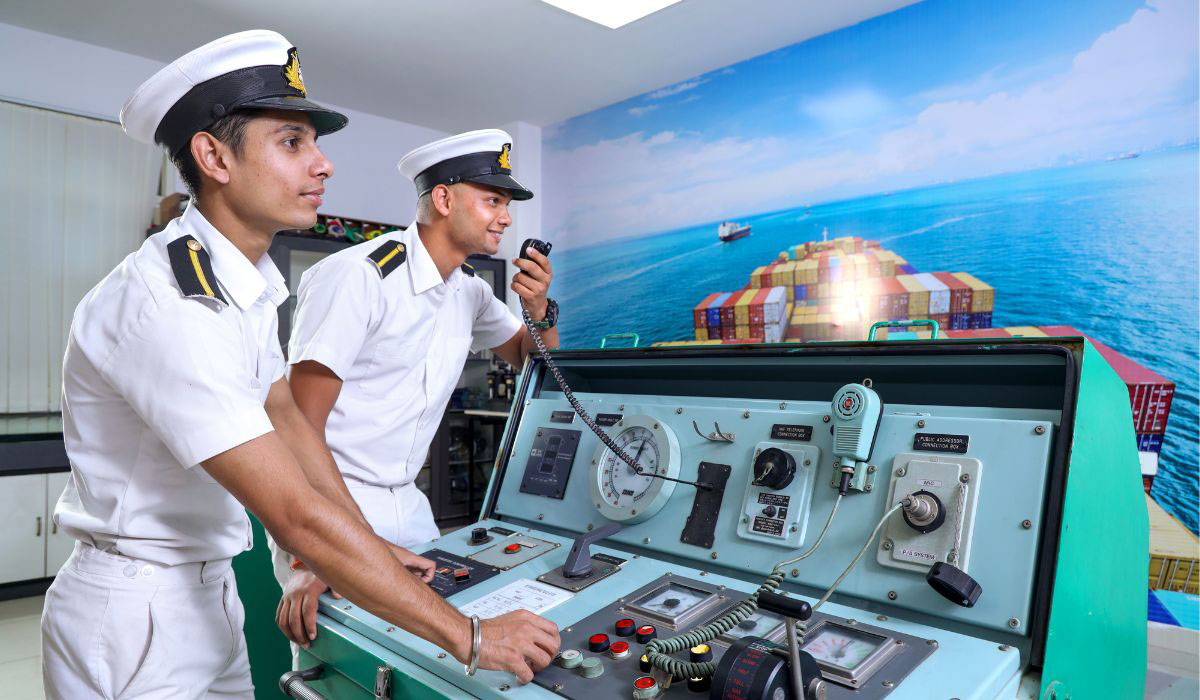Do you want to work in the Merchant Navy? Do you find yourself drawn to the vastness of the ocean and the potential of a difficult but fulfilling profession? You’ve come to the correct site if you nod your head in agreement!
We will highlight key factors, including Merchant Navy salary in India, job profiles, and critical insights, from a student’s perspective.
Understanding Maritime Studies: A Foundation for Maritime Careers
Before getting into the complexities of pay scales and job roles in the Merchant Navy, a rudimentary foundation of Maritime Studies is required. B.Sc. Nautical Science is a broad academic area that covers a wide range of topics important to the nautical sector. This discipline includes navigation, marine engineering, maritime law, and maritime management. Students majoring in Maritime Studies acquire extensive knowledge and practical skills related to ships, navigation, maritime regulations, and effective maritime operations management.
The developers designed these programs to provide students with a strong foundation in both academic principles and practical applications. Institutes such as the School of Maritime Studies offer aspiring mariners professional advice and hands-on instruction, ensuring they prepare well to manage any situation that may arise.
Merchant Navy Job Profiles:
- Deck Cadet: Deck cadets serve as the foundation of the Merchant Navy, entering the profession with enthusiasm and a thirst for knowledge. These individuals, typically recent graduates from maritime academies, undergo rigorous practical training onboard ships. Under the guidance of experienced officers, deck cadets immerse themselves in the intricacies of navigation, seamanship, and various shipboard operations. The deck cadet Merchant Navy salary, ₹20,000 to ₹50,000 monthly, provides financial support at the start of their career.
- Third Officer (Third Mate): Upon completing their sea time as deck cadets and passing essential examinations, individuals ascend to the rank of Third Officer. In this role, they take on more significant responsibilities, assisting senior officers in navigation, watchkeeping duties, and cargo operations. Third Officers earn a competitive salary of merchant navy officers, contributing to the growing appeal of the merchant navy salary structure.
- Second Officer (Second Mate): With further sea service and successful exams, Third Officers progress to the role of Second Officer. Second Officers focus on advanced navigation techniques, chart corrections, and cargo-related responsibilities. Their efforts contribute significantly to the ship’s operations, aligning with the rewarding merchant navy salary in India for officers at this level.
- Chief Officer (First Mate): The Chief Officer, positioned as the second-in-command on board, oversees the deck department with authority and efficiency. They work closely with the Captain, providing invaluable support in the overall management and operation of the vessel. Their leadership role aligns with the high salary of merchant navy officers, reflecting their critical responsibilities.
- Master (Captain): The pinnacle of a mariner’s career is achieved upon reaching the rank of Master, commonly known as the Captain. The Captain, the highest-ranking officer, ensures safe ship navigation and operation while earning a highly competitive Indian Navy salary. This role exemplifies what is navy merchant, highlighting its blend of leadership, expertise, and financial reward.
Merchant Navy Salary in India:
The merchant navy salary in India offers attractive packages, starting with stipends for deck and engine cadets ranging from ₹20,000 to ₹50,000 per month. This initial phase provides essential financial support as they gain foundational skills in maritime operations. To begin with, junior officers, such as Third Officers and Fourth Engineers, typically earn between ₹1,50,000 and ₹3,00,000 monthly. Senior officers like Captains and Chief Engineers earn impressive salaries from ₹8,65,000 to ₹20,00,000, reflecting their crucial responsibilities. As a result, the Indian Navy salary structure presents a highly promising career path for those venturing into this field. Not only does it provide an opportunity for thrilling maritime adventures, but it also guarantees substantial financial stability. Therefore, this combination makes the Indian Navy an attractive option for individuals seeking both professional fulfillment and long-term financial security.
Key Insights for Aspiring Mariners:
- Global Exposure: Working in the Merchant Navy offers a unique opportunity for global exposure, allowing individuals to travel to different countries and experience diverse cultures.
- Career Progression: The Merchant Navy provides clear paths for career progression, enabling individuals to climb the ranks and take on more significant responsibilities.
- Job Security: The maritime industry continues to grow, ensuring steady job opportunities for qualified professionals. With advancements in technology, the demand for skilled mariners is higher than ever.
- Training and Certifications: Aspiring mariners must undergo rigorous training and obtain relevant certifications to excel in their careers. Institutions like the School of Maritime Studies provide comprehensive courses that prepare students for the challenges of the industry.
A career in the Merchant Navy is more than simply a job; it’s an experience that offers tremendous financial incentives, professional advancement, and the opportunity to travel the wide oceans. Aspiring mariners make informed career decisions by understanding job roles, Maritime Studies’ importance, and lucrative Merchant Navy salaries in India.
Chitkara University School of Maritime Studies (CUSMS) is a lighthouse for young seafarers in Punjab, Haryana, Himachal Pradesh, Uttarakhand, and Jammu and Kashmir. CUSMS, which is affiliated with Chitkara University and accredited by the Directorate General of Shipping (DGS), Ministry of Shipping, Government of India, provides a complete education and training platform for individuals interested in pursuing a lucrative career in the Merchant Navy. CUSMS is committed to providing students with the fundamental information, skills, and attitude required for success in the maritime business, with a strong emphasis on humanitarian principles and holistic education.
Comprehensive Educational Programs and Practical Exposure
CUSMS is committed to offering diverse and cutting-edge educational programs that align with the dynamic needs of the maritime sector. The institution’s small classroom sizes ensure personalized attention, fostering a deep understanding of the subjects. Experienced faculty members, equipped with industry exposure, guide students, shaping them into skilled mariners. Practical exposure to real-life onboard ship situations hones candidates’ abilities to handle challenging scenarios, fostering innovation and problem-solving skills.
3-Year B.Sc in Nautical Science and Promising Career Prospects
CUSMS provides a three-year residential B.Sc. Nautical Science degree, which includes a 12-month internship on merchant navy ships. This comprehensive program emphasizes the development of a solid knowledge background, practical skills, discipline, and team spirit. CUSMS graduates progress from Deck Cadet to Captain (Master), developing flexibility, awareness, professionalism, and discipline throughout their career journey. A career in the Merchant Navy offers worldwide exposure, thrilling adventures, and continuous opportunities for growth and lifelong learning. Choosing CUSMS means beginning a life-changing path toward a rewarding and exciting marine profession.






